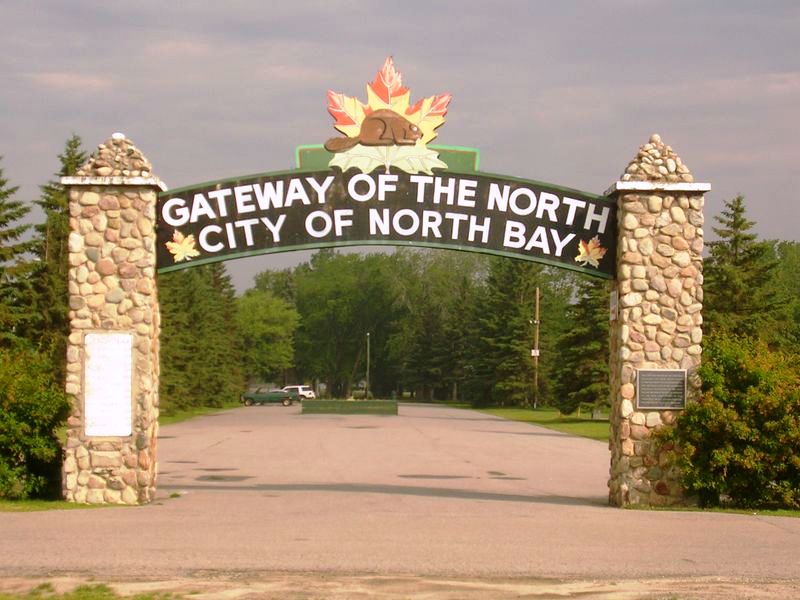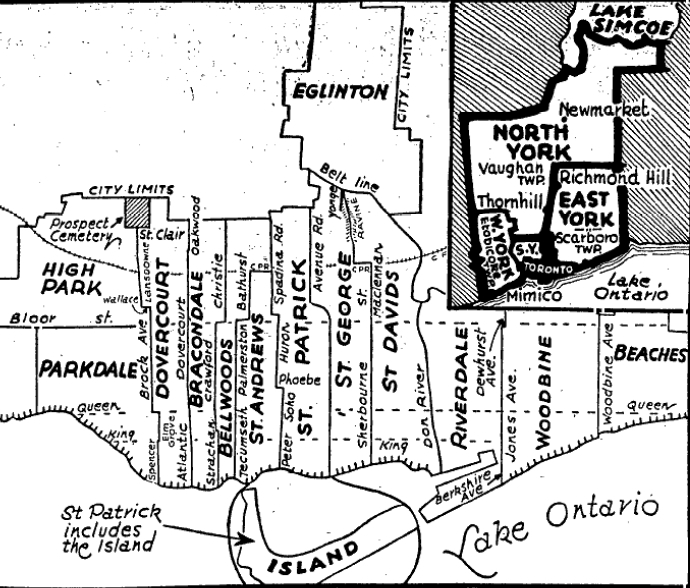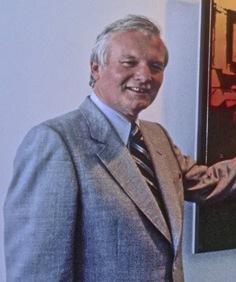|
Dennis Drainville
Dennis Paul Drainville (born February 20, 1954) is a Canadian retired bishop, educator and politician. He was a member of the Legislative Assembly of Ontario from 1990 to 1993; later taught humanities and history for 12 years at the Cégep de la Gaspésie et des Îles and was the Anglican Bishop of the Diocese of Quebec from 2009 to 2017. He was the Green Party of Canada candidate in Gaspésie—Les Îles-de-la-Madeleine for the 2019 Canadian federal election. Ontario politics Drainville first ran for the Ontario legislature in the 1977 provincial election. He was a member of the Liberal Party at the time and campaigned in the downtown Toronto riding of Riverdale. He finished a distant third against the winner, Jim Renwick of the New Democratic Party. Drainville later joined the NDP and, in 1989, was arrested for protesting the province's clearcutting practices in the Northern Ontario forests around Temagami. He also stood with Chief Gary Potts and the Teme-Augama An ... [...More Info...] [...Related Items...] OR: [Wikipedia] [Google] [Baidu] |
The Right Reverend
The Right Reverend (abbreviated The Rt Revd, The Rt Rev'd, The Rt Rev.) is a style (manner of address), style applied to certain religion, religious figures. Overview *In the Anglican Communion and the Roman Catholicism in the United Kingdom, Catholic Church in Great Britain, it applies to bishops, except that ''The Most Reverend'' is used for archbishops (elsewhere, all Roman Catholic Church, Catholic bishops are styled as ''The Most Reverend''). *In some churches with a Presbyterian heritage, it applies to the current Moderator of the General Assembly, such as **the current Moderator of the United Church of Canada (if the moderator is an ordained minister; laypeople may be elected moderator, but are not styled Right Reverend) **the current Moderator of the Presbyterian Church in Ireland **the current Moderator of the General Assembly of the Church of Scotland **the current Moderator of the Presbyterian Church of East Africa **the current Moderator of Presbyterian Church of G ... [...More Info...] [...Related Items...] OR: [Wikipedia] [Google] [Baidu] |
Legislative Assembly Of Ontario
The Legislative Assembly of Ontario (OLA, french: Assemblée législative de l'Ontario) is the legislative chamber of the Canadian province of Ontario. Its elected members are known as Members of Provincial Parliament (MPPs). Bills passed by the Legislative Assembly are given royal assent by the Lieutenant Governor of Ontario to become law. Together, the Legislative Assembly and Lieutenant Governor make up the unicameral Legislature of Ontario or Parliament of Ontario. The assembly meets at the Ontario Legislative Building at Queen's Park in the provincial capital of Toronto. Ontario uses a Westminster-style parliamentary government in which members are elected to the Legislative Assembly through general elections using a "first-past-the-post" system. The premier of Ontario (the province's head of government) holds office by virtue of their ability to command the confidence of the Legislative Assembly, typically sitting as an MPP themselves and lead the largest party or a ... [...More Info...] [...Related Items...] OR: [Wikipedia] [Google] [Baidu] |
Teme-Augama Anishnabai
The Teme-Augama Anishnabai (from the Anishinaabe ''Dimii'aagamaa Anishinaabe'', "the deep water people") is the Indigenous Anishinaabe community of the Temagami First Nation. The Teme-Augama Anishnabai have trapped and hunted animals in the Temagami region of Canada for over 5,000 years. Bear Island on Lake Temagami is home to the Aboriginal community. Land claims In 1973, The Teme-Augama Anishnabai exercised a land caution against development on the Crown land of 10,000 square kilometres-most of the Temagami area. The attorney-general of Ontario pursued legal action against the Band for this caution. The Teme-Augama Anishnabai lost this court case in 1984 and proceeded with an appeal to the Supreme Court. In 1988, the Ontario Minister of Natural Resources, Vince Kerrio approved the expansion of the Red Squirrel logging road, directly through Anishinaabe territory. This prompted a series of roadblocks by the Teme-Augama Anishnabai and by environmentalists in 1988-1989. In ... [...More Info...] [...Related Items...] OR: [Wikipedia] [Google] [Baidu] |
Gary Potts
Gary Potts (Dec. 1, 1944 – June 3, 2020) was a chief of the Temagami First Nation and the Teme-Augama Anishnabai in Temagami, Ontario, Canada. He was chief in August 1973 when the Temagami Land Caution began with land claims being filed with title offices to prevent development on Crown land. Potts was a leader of the Red Squirrel Road blockades in 1988–1989, which were a part of Temagami's struggle to protect their Homeland. Bruce Clark, who was a lawyer for the Temagami First Nation throughout the 1970s and 1980s, left after Steele J. 's Trial decision (1984) when the Temagami Band Council retained the services of an experienced Appeal Court Lawyer at the Firm of Borden & Elliot in Toronto (1985). Potts was chief in 1991 when the Supreme Court of Canada ruled that the Teme-Augama Anishnabai gave up rights to the land via the 1850 Robinson Treaty despite the Tema-Augama Anishnabai claiming that they never signed or consented to the treaty. The Supreme Court of Canada fou ... [...More Info...] [...Related Items...] OR: [Wikipedia] [Google] [Baidu] |
Temagami
Temagami, formerly spelled as Timagami, is a municipality in northeastern Ontario, Canada, in the Nipissing District with Lake Temagami at its heart. The Temagami region is known as ''n'Daki Menan'', the homeland of the area's First Nations community, most of whom are Anishinaabe (Ojibwe), living on Bear Island. The official name for this group is the Temagami First Nation. However, a larger group that includes these people, plus non-status residents and some non-residents is called the Teme-Augama Anishnabai. Some of the main tourist attractions within the community include old-growth red and white pine, Lake Temagami, Caribou Mountain, fishing, showings of Grey Owl from the 1930s, and over of canoe routes. It is also known as the staging point for cottage vacationing and wilderness canoeing trips on Lake Temagami, in Lady Evelyn-Smoothwater Provincial Park, and vast tracts of wilderness in the area. There are several outfitters here that cater to outdoor activity. The ... [...More Info...] [...Related Items...] OR: [Wikipedia] [Google] [Baidu] |
Forest
A forest is an area of land dominated by trees. Hundreds of definitions of forest are used throughout the world, incorporating factors such as tree density, tree height, land use, legal standing, and ecological function. The United Nations' Food and Agriculture Organization (FAO) defines a forest as, "Land spanning more than 0.5 hectares with trees higher than 5 meters and a canopy cover of more than 10 percent, or trees able to reach these thresholds ''in situ''. It does not include land that is predominantly under agricultural or urban use." Using this definition, '' Global Forest Resources Assessment 2020'' (FRA 2020) found that forests covered , or approximately 31 percent of the world's land area in 2020. Forests are the predominant terrestrial ecosystem of Earth, and are found around the globe. More than half of the world's forests are found in only five countries (Brazil, Canada, China, Russia, and the United States). The largest share of forests (45 percent) are in th ... [...More Info...] [...Related Items...] OR: [Wikipedia] [Google] [Baidu] |
Northern Ontario
Northern Ontario is a primary geographic and quasi-administrative region of the Canadian province of Ontario, the other primary region being Southern Ontario. Most of the core geographic region is located on part of the Superior Geological Province of the Canadian Shield, a vast rocky plateau located mainly north of Lake Huron (including Georgian Bay), the French River, Lake Nipissing, and the Mattawa River. The statistical region extends south of the Mattawa River to include all of the District of Nipissing. The southern section of this district lies on part of the Grenville Geological Province of the Shield which occupies the transitional area between Northern and Southern Ontario. The extended federal and provincial quasi-administrative regions of Northern Ontario have their own boundaries even further south in the transitional area that vary according to their respective government policies and requirements. Ontario government departments and agencies such as the Growth Pl ... [...More Info...] [...Related Items...] OR: [Wikipedia] [Google] [Baidu] |
Clearcutting
Clearcutting, clearfelling or clearcut logging is a forestry/ logging practice in which most or all trees in an area are uniformly cut down. Along with shelterwood and seed tree harvests, it is used by foresters to create certain types of forest ecosystems and to promote select species that require an abundance of sunlight or grow in large, even-age stands. Logging companies and forest-worker unions in some countries support the practice for scientific, safety and economic reasons, while detractors consider it a form of deforestation that destroys natural habitats and contributes to climate change. Clearcutting is the most common and economically profitable method of logging. However, it also may create detrimental side effects, such as the loss of topsoil, the costs of which are intensely debated by economic, environmental and other interests. In addition to the purpose of harvesting wood, clearcutting is used to create land for farming. Ultimately, the effects of clearcutt ... [...More Info...] [...Related Items...] OR: [Wikipedia] [Google] [Baidu] |
Jim Renwick (Canadian Politician)
James Alexander Renwick (November 29, 1917 – November 28, 1984) was a politician in Ontario, Canada. He was a New Democratic member of the Legislative Assembly of Ontario from 1964 to 1984 who represented the downtown Toronto riding of Riverdale. He served as president of the Federal New Democratic Party from 1967 to 1969. He died while still in office. Background Renwick came from a relatively privileged background. He attended Trinity College at the University of Toronto and Osgoode Hall Law School, and enlisted with the Canadian Army during World War II. He reached the rank of captain, and became an adjutant with the Canadian Armored Corps in the 28th Armored Regiment. He was captured by the Nazis at Falaise following D-Day, and was a prisoner-of-war for a time. After returning to Canada, Renwick finished his legal studies in 1947 and became a corporate lawyer. Attorney-General Roy McMurtry, characterized Renwick as "one of the most brilliant corporate lawyers of ... [...More Info...] [...Related Items...] OR: [Wikipedia] [Google] [Baidu] |
Riverdale (electoral District)
Riverdale was a provincial riding in Ontario, Canada that existed from 1914 to 1999. It occupied an area east of the Don River from the city limits just north of Danforth Avenue south to Lake Ontario. It was named after the neighbourhood of Riverdale. In 1999 a major reduction in Ontario seats resulted in Riverdale being merged with part of East York into a larger riding called Broadview-Greenwood. The 1964 by-election in this riding is well known for being among the first elections in Canadian history where a party (the NDP) used door to door canvassing and a get out the vote effort. Boundaries In 1914 the riding was created out of the Toronto East riding. Its initial borders were Logan Avenue from Ashbridges Bay to the city limits just north of the Danforth. The northern boundary followed the city limits with East York east to Woodbine Avenue. The eastern boundary followed this road south to the lake. In 1926 five ridings were added to Toronto. Three new ridings were created ... [...More Info...] [...Related Items...] OR: [Wikipedia] [Google] [Baidu] |
1977 Ontario General Election
The 1977 Ontario general election was held on June 9, 1977, to elect the 125 members of the 31st Legislative Assembly of Ontario. The Progressive Conservative Party, led by Premier Bill Davis, was re-elected for an eleventh consecutive term in office, again with a minority in the legislature. The PCs won an additional seven seats, but were not able to win a majority. The Liberal Party, led by Dr. Stuart Smith, lost one seat compared to its result in the previous election, but formed the Official Opposition because the NDP lost more seats. The New Democratic Party, led by Stephen Lewis, lost five seats, and losing the status of Official Opposition to the Liberals. Sheila Copps, future federal cabinet minister and Deputy Prime Minister of Canada, made her political debut in this election, finishing second in the riding of Hamilton Centre. This was the first election in which Jim Bradley, the second-longest serving MPP in Ontario history, was elected. Results 1 Includes ... [...More Info...] [...Related Items...] OR: [Wikipedia] [Google] [Baidu] |
2019 Canadian Federal Election
The 2019 Canadian federal election was held on October 21, 2019. Member of Parliament (Canada), Members of the House of Commons of Canada, House of Commons were elected to the 43rd Canadian Parliament. In keeping with the Fixed election dates in Canada#Federal, maximum four-year term under a Canada Elections Act#Notable provisions, 2007 amendment to the ''Canada Elections Act'', the writs of election for the 2019 election were issued by Governor General of Canada, Governor General Julie Payette on September 11, 2019. With 33.12% of the vote for the Liberal Party of Canada, Liberal Party, led by incumbent Prime Minister of Canada, Prime Minister Justin Trudeau, the 2019 election ranked second (with the 2021 Canadian federal election, 2021 federal election ranking first) for the lowest vote share for a party that would go on to form a single-party Federal minority governments in Canada, minority government. The Liberals lost the popular vote to the Conservative Party of Canada, Con ... [...More Info...] [...Related Items...] OR: [Wikipedia] [Google] [Baidu] |
.jpg)



